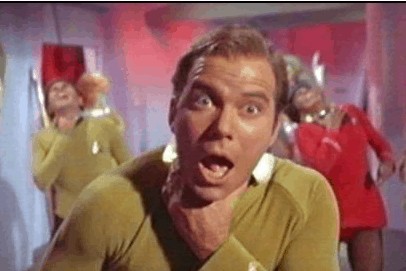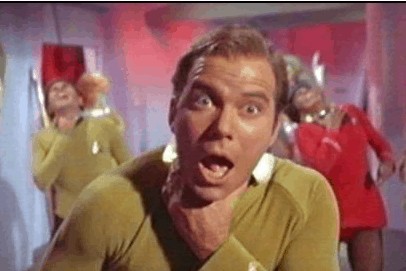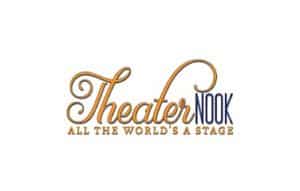
The Amateur Actor can adopt bad habits out of necessity or ignorance of the need to portray in an authentic and genuine way. Bad habits such as monotone voice, bad sense of timing, poor diction, awkward statements, and an inability to take stage direction can make for an awful performance on stage and or on screen. Here are some of the traps an amateur or bad actor may fall into, and followed by tips and tricks to help aid the actor to more authenticity.
Has Intense Stage Fright
Stage fright is a condition where a person feels extremely insecure and is unable to perform confidently on stage. A bad actor may work themselves into a state before going on stage where they could clam up and freeze.
Some performers have been known to take a drink of alcohol to help calm their nerves before a performance. In reality this makes things worse because they risk an unfocused, and un-genuine performance. Not only are they cheating themselves, but those they are acting along side.They are also cheating the audience, which is a no no.
Stage fright can also mean the fullness of breath and ability to expand their voice is at risk. It could mean that performers take shallow breaths, speak quickly and without resonance. Stage fright can encourage a rushed and somewhat wooden performance with little vocal quality.
Stage fright also means that the actor could drop lines, thereby throwing the scene, if not the play itself. It may mean that their fellow actor needs to be on alert for the actor in case they drop their lines, thereby risking their ability to portray their own character fully.
Experience helps actors gain confidence and muscle memory. It also helps the actor rely on their own faculties to give an authentic performance. Classes in a range of acting areas will also help.
If this is you, try Toastmasters, take an acting and voice class to develop skills and confience.
Doesn’t Know What To Do with Their Hands
Sometimes the actor’s body will show its insecurity through where their hands are used in a distracting way on stage. With quick movements or fiddling inappropriately which can cause a distraction. The Limbic system doesn’t know how to handle the overload of emotions and so it reacts in the hands and feet. Sometimes you will see an insecure actor with their hands and eyes in ways that do not aid the storyline at all.
They may walk quickly or look as though they don’t know where to walk or how to stand on stage. They can hop from one foot to the other looking shifty. This can make them look insecure and the audience may be too distracted by what is happening with the actor’s movements rather than focusing on the scene.
If you are a beginning actor, make sure your movements are deliberate, not over the top, nor unconsciously thrown everywhere. Know that everything has a purpose on stage and your movements also tell a story or should at the very least forward on the story.
Shifting Backwards and Forwards
You will sometimes see speakers and beginning actors do this on stage. They are constantly, bouncing up and down on their feet, moving on stage without deliberate intentions. Sometimes they move from one point to another, thinking that it will help their portrayal, but they don’t realize that a constantly moving actor actually upstages the other actors because what is moving, usually the eye will move towards from an audience’s point of view.
Once again the remedy for this is to make sure every movement is deliberate and is pertinent to your character and their intentions. Also, take direction from the director who should help you with movements and overall blocking. If unsure, ask your director if a movement is right or not.
Monotone Voice
Bad acting can also manifest as a monotone voice. Inexperienced actors may have stiff delivery, without emotion and connection to their character, or the overall sense of the play or performance. Sometimes actors are so afraid to reveal themselves fully, that they adopt a monotone voice, thinking it will make the audience buy a depiction of a character.
Find the natural inflections and emphasis in each sentence. The best way to work with a monotone voice is to whisper your lines and then record it. You will naturally find the perfect emphasis on the correct words, which are usually the nouns and verbs. This is a great trick to use for most actors.
Poor Enunciation And Diction
Bad acting can also reveal itself as poor diction especially with consonants and the elongation of the vowels. Many beginning or bad actors simply speak too quickly or slur their words because they lack confidence in their ability to be heard.
- To remedy this, the actor needs to slow down their words and elongate the sounds of their vowels. You also need to use consonants. Try not to overdo it, but the t and d sounds do need to be heard. The more inexperienced actors work on their diction the better communicator they will be overall.
- To improve diction more, try speaking a number of tongue twisters such as:
Betty Botter bought some butter,
She sells seashells by the sea shore,
Red Lorry, yellow Lorry.
- Poking the tongue out and speaking your lines helps with diction as well. It helps with your facial muscles to remember to use the correct rhythm when speaking your lines.
- Deliberately slow your speech down so people can understand you. Try not to be too labored, but measured. You might want to test your lines out by listening to your speech and deliberately listening for speed and diction.
Not Listening to the Cues Given
More often than not someone may deliver a line at an inappropriate moment. The Bad actor may completely not realize this has happened and offer the same line, which normally comes in at a later point. In other words, the bad actor isn’t actually actively listening to what is happening in front of them. They need to actively listen to the lines and cues given in case they are called to save a line or person.
Mouths the Words of their Fellow Actors Lines
While speaking their lines, a bad actor or may mouth the words or lines given by their opposite actor usually unconsciously. This looks like they are anticipating what is happening from an audience’s point of view, thereby not giving the audience an authentic experience.
Infact you can sometimes see in B grade movies that actors opposite the speaking actor, will slightly mimic or mouth the words of other actors without even themselves realizing it.
- Recognize that this could be you who is doing this. If it is, make a deliberate attempt not to mouth words, but truly listen to their words and ‘react’ rather than mimic.
Bad Actors Create No Theater Business
Theater business is physical activity on stage. It is what an actor is physically doing, especially with props. Some beginning has actors sit or stand on stage without enough things to do or stage business. They run out of things to do and sit awkwardly speaking their lines. This looks like bad acting because they may look stiff and awkward.
Actors should know exactly what to do when it is appropriate. For instance, if making a cup of coffee, actually make a cup of coffee, place the sugar in the cup, stir, and then drink it. Sometimes inexperienced actors will pretend and drink nothing in the cup which is obvious. This can throw the audience into disbelieving what is happening in the play.
Experienced actors should know how to make offers with the use of props on stage like it is second nature. This is often in line with what the director requires and sometimes to his or her delight. However sometimes when a director does not give enough stage business for an actor to do, they will feel awkward and manufacture either emotion or have a stiff, awkward performance.
Bad Actors Have no Sense of Timing
Many times an inexperienced or young actor will take on a role to recite lines, without connection or have a true sense of purpose. They will miss-time their delivery literally, but also miss the nuances and subtle ways in the lines which are needed to completely fulfill a role.
There are beats in a scene, sometimes many. Bad acting can express itself as a miss-timed action, which could be too slow to complete such as firing a gun at the wrong time. They often miss-read the relevance of the scene and miss-read the timing of their actions and the pace of the show.
- Experience will help the inexperienced actor develop the confidence to know when the beats in a scene, stage business, and timing which comes.
- Actors need to experience a variety of roles and take risks to act confidently and authentically in roles.
Bad Actors Drop Scenes and Ignore Pace
Inexperienced actors can sometimes drop their energy, lines, stage business, and overall understanding of a scene. In mid-scene an actor might completely forget what they were meant to say or do and therefore stop the scene from forwarding, thereby breaking the fourth wall. But they may not have the knowledge or experience to save themselves in that moment or anyone else.
They can also sometimes lose the pace of the play. Sometimes their performance might speed up or often slow down the pace of a play. For example in a high action scene, the actor might come in with a lack of appropriate energy and deliver monotone lines and an unconfident stance. This can pull the scene down and fellow actor’s performances as well.
- Get energy in your body before you enter the stage. Run-on the spot to make sure your energy doesn’t drop
- Know your role inside out. Visualize what you are meant to do and say when and where. This will give you confidence and you can focus on your interactions and reactions at the moment.
- Prepare for your role. Don’t let the wind blow you around. Make sure you completely know your lines, the scene, and the over-all play’s theme. Know when the action changes and your demeanor should accurately reflect what you can adapt yourself best to portray a character confidently.
Bad Actors Wear their Costume Awkwardly and Makeup is Sloppery Done
At times beginning actors don’t know how to use their costumes and aren’t aware of what their character looks like. They assume that by putting on a costume, it is automatically a good fit.
If playing a bum, for instance, it’s fine to look bedraggled. However, if attending a ball, the actor shouldn’t have shirts hanging out with a lopsided bow. Or when wearing a wig for a character, that it suits, and is not ‘fake’ looking. Fake looking wigs can break the fourth wall.
Makeup can sometimes look either underdone or overdone. Lights on the stage can wash your face out, especially if you are on the lighter side of skin color. Makeup is meant to give you a definition. Sometimes actors will use no makeup on stage which doesn’t help with shiny skin reflecting under the lights.
Unless you’re playing a clown or prostitute, try not to over do the makeup. Very heavy, dark lines under the eyes and drawing on the eyebrows can demonstrate amateur qualities. Try not to overdo the lines if you are being aged. Or use contouring for the aged stage look. The following would be fine for the stage if you need to age yourself.
Bad Acting Means Actors ‘Emote’ too Much
This is one of the worst bad habits new actors could get themselves into. There is a belief that by over-emoting lines in a scene, that is good acting. Exaggerating or over emphasizing emotions can look corny and plain hilarious.
Sometimes actors can let emotion get away with them, where they break down emotionally while portraying a role. Actors can cry and lose their words and the overall meaning of the scene at hand. This means they lack control of themselves and aren’t’ actually that reliable.
Authentic acting or revealing a character’s emotions in a genuine way, using instincts will take an actor a long way. Audience members want to be moved by a performance in some way. By over-emoting, a scene can actually take away the enjoyment of an audience to feel the emotions themselves.
Bad Acting Means Playing a Caricature or Stereotype
Sometimes actors fall into the trap of ‘performing‘ a role or playing a stereotype of a person only because it is easier to do so rather than play the character authentically. Often an actor will portray characters in racist, sexist, or truly unauthentic ways. A case in point is the following roles played by actors, which ebb into poor acting.
Bad Acting: The Inability to Connect
Connection to other characters is extremely important in a scene. Too many times beginning and or inexperienced actors say lines without truly inhabiting the depth or true understanding their lines bring. They can over-emote or under-emote, producing the monotone voice. They can also completely miss the connection saying lines that are completely mismatched with the scene at hand, or the character they are playing with. That also means they are not listening to the other character.
The following movie ‘The Room’ is a case in point where the main actor (and writer) plays a man inlove, but the actor himself completely misses the meaning of his lines (although a terrible script) and invents emotions which don’t match the meaning or intention.
Clearly the actor completely drops his rage with his love interest only to change immediately by addressing ‘Mark’ in a nice way; ‘…Oh hi Mark!’ Sometimes amateur actors aren’t fully engaged and even knowledgeable with the intentions and motivations of their characters in a given scene. The actor is more inclined to want to be ‘seen’ or heard instead, thereby seeming exhibitionistic. The audience is left somewhat robbed of their experience. Don’t blame them if they want their money back.
Bad Acting Includes Lack of Voice Projection
When an actor is feeling insecure, they sometimes don’t want to project their voice as they may be afraid of being judged, so instead they bottle up their voice to try and keep themselves safe. But acting, especially on the stage requires projection and clarity of voice. It also requires confidence.
Oftentimes the beginning actor doesn’t use their diaphragm properly, producing a weakened voice on stage. Their vocal range might also ebb into the monotone range. Oftentimes new actors just don’t have the acting experience to know how to project their voices, but with time they can develop a good sense of projection and clarity of voice. Acting and Voice classes are a great way to start developing the voice.
Bad Actors Lack Eye Contact with Fellow Actors
When an actor is insecure or lacks confidence in their ability to fulfill a role, they may not make adequate eye contact with fellow actors. Or they may over-do the eye contact thinking that makes for good acting.
Lack of eye contact can look like the actor is insecure or untrustworthy, because as the old adage says, that the eyes are the window to the soul. If an audience watching a stage production sees that a character doesn’t make strong eye contact where appropriate, the trust in the actor, or integrity of the scene begins to fall.
Lack of eye contact with an actor can come across as insecure and that they lack experience in their job. An actor’s job is to be believable enough to satisfy the audience.
If this is you, try looking longer at people’s eye colour and then recall it later. This will help you make more eye contact on stage. Or intellectually understand if you are overdoing the eye contact. The more an actor is anchored in their character, the scene and the play itself the more authentic theirl portrayal.
In Conclusion there are many ways in which bad acting can and does emerge from stiff, awkward stances, monotone voices, non-connection with fellow actors to not knowing what to do with their hands to name a few. But these bad habits are changeable as long as the actor recognises that they need changing. Experience will remedy most of the bad habits above. But awareness and the willingness to find ways to better your acting will happen eventually.
We hope you enjoyed this article, please see great theater pages here. Homepage


